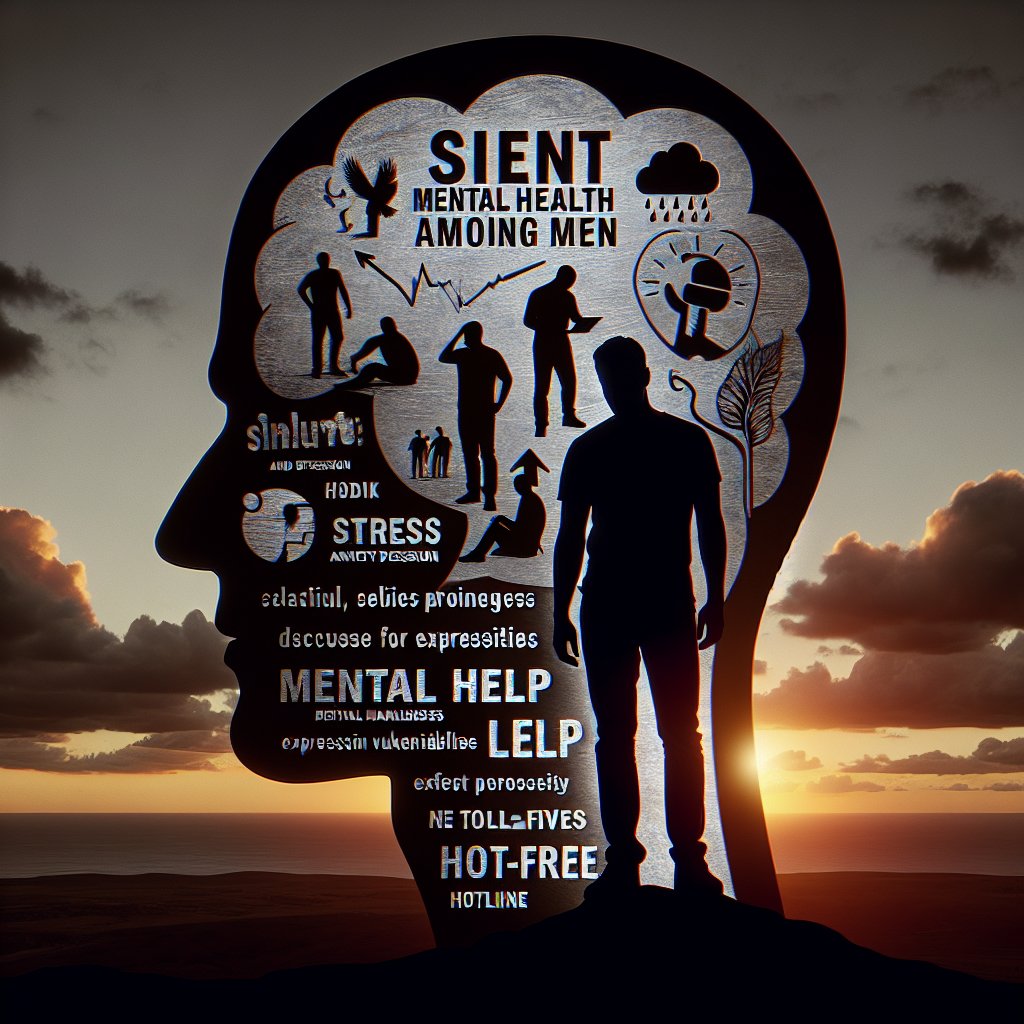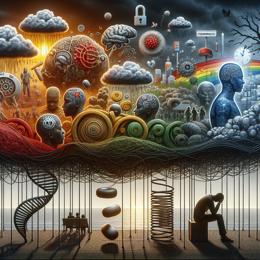Content created by AI
Breaking the Stigma: Embracing Men's Mental Health in South Africa
In South Africa, mental health has long been a subject shrouded in silence, particularly when it comes to men. This silence is often maintained by societal expectations and gender norms that discourage men from expressing vulnerabilities, effectively exacerbating a cycle that leads to dire personal and social consequences.
Recent data from the World Health Organization indicates a troubling statistic: In 2019, out of 13,774 reported suicides in South Africa, a staggering 10,861 were among men. These numbers underscore a crisis that has only deepened in the aftermath of the Covid-19 pandemic, economic strife, and societal pressures. The strong undercurrent that men should "tough it out" often leaves them with a shrinking window for seeking help.
Clinical coach Dr. Schalk Burger from Kena Health, along with specialists like Dr. Tshepo Sedibe of De Beers Group Managed Operations and Anglo American's Dr. Charles Mbekeni, urgently call for a shift in how we approach men's mental health. They point out the entrenched tradition of stoicism among men, which hinders the acknowledgement and treatment of psychological issues. By normalizing conversations around mental health and simplifying access to professional assistance, experts believe we can transform the current male mental health trajectory.
The nexus between unresolved mental health issues and harmful behaviors among men cannot be overstated. Dr. Mbekeni expresses concern regarding the link between unaddressed mental health conditions and patterns of aggression, violence, and substance abuse. These patterns not only affect the individual but also resonate through families and communities, creating intergenerational impacts.
Tackling these challenges calls for introspection and self-awareness. It demands that men learn to recognize the physical and psychological signals that their bodies manifest, suggesting that all may not be well. Dr. Sedibe emphasizes that early detection and action are paramount. Where stress symptoms resolve within a short time naturally, persistent signs require professional intervention.
The experts collectively urge men not to hesitate in seeking help similar to how one would approach a physical injury. They stress that just like setting a broken bone, mental health concerns are manageable and often treatable once acknowledged and approached proactively.
Several toll-free helplines are available around the clock in South Africa for those in crisis. These include the Suicide Crisis Helpline (0800 567 567), the Department of Social Development Substance Abuse Line (0800 12 13 14 or SMS 32312), and the National Counselling Line (0861 322 322). These resources are pivotal in creating platforms for help and should be utilized by anyone in need.
The collective message is clear: It's essential for men to realize that seeking help signifies strength, not weakness, and is the first step toward a healthier, more fulfilling life. Challenging the "boys don't cry" fallacy could be the key to breaking cycles of destructive behaviors and traumas, paving the way for a generation of men who are healed and whole.










